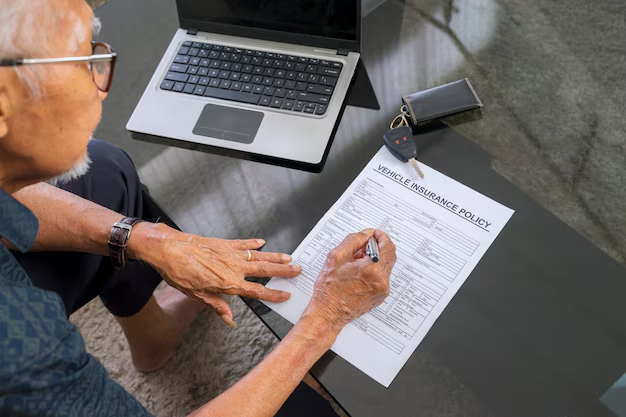What You Need to Know: Is Your Home at Risk with Medicaid?
When considering Medicaid, a common concern among applicants and their families is whether the program might risk their homeownership. The thought of losing a family home can be daunting, but understanding the nuances of Medicaid eligibility and estate recovery rules can provide clarity and peace of mind. Let's delve deeper into the intricacies of how Medicaid interacts with homeownership, demystify common misconceptions, and equip you with the essential knowledge to navigate these waters confidently.
Understanding Medicaid and Your Home
Medicaid is a federal and state program designed to provide health coverage to low-income individuals and families. One cornerstone question for potential Medicaid recipients is how their assets, particularly their home, might affect their eligibility.
Is Your Home Considered an Asset for Medicaid?
For Medicaid eligibility, your primary residence usually does not count as an accessible asset. However, there are specific qualifications your home must meet:
- Principal Residence: To be exempt, the home should be your primary and principal place of living.
- Equity Limits: Medicaid may impose limits on the allowable home equity for qualification, which varies by state.
Key Exception for Married Couples
When one spouse enters a nursing facility while the other remains at home (community spouse), Medicaid generally protects the home from being considered an asset. This ensures that the community spouse is not displaced.
What is Medicaid Estate Recovery?
While Medicaid may not take your home during your lifetime, there is a stipulation after the beneficiary's death when state programs might seek recovery of benefits paid. This is known as the Medicaid Estate Recovery Program (MERP). The estate recovery policies can vary from state to state, but the federal government mandates that states must attempt to recover costs from the estates of deceased Medicaid recipients.
When Does Estate Recovery Occur?
Estate recovery typically targets costs paid for long-term care services, and recovery happens only after the beneficiary's death. Here’s what you need to know:
- Age Matters: Estate recovery applies mainly to those who received Medicaid benefits from age 55 onwards.
- Liens and Claims: States may place a lien against the property during the beneficiary's lifetime or claim against the estate after death.
- Deferrals and Hardships: Estate recovery may be waived or deferred if it causes undue hardship to the surviving family.
Navigating Exemptions and Protections
Certain conditions can shield the home from Medicaid recovery efforts. Understanding these conditions and preparing appropriately can often prevent the forced sale of a family property.
Circumstances That Protect Your Home
- Surviving Spouse: Medicaid cannot recover from a home while the beneficiary's spouse is alive.
- Dependent Relatives: If a child under 21, a blind or disabled child, or a sibling with equity interest and residency lives there, recovery may be deferred.
- Caregiver Protections: An adult child who lived in the home for at least two years, providing care that allowed the Medicaid recipient to stay at home rather than in a facility, may protect the home from recovery.
Practical Tips to Prevent Medicaid Home Recovery
For many families, proactive planning is crucial. Here are practical steps to ensure your home remains secure:
Early Planning: Engage in Medicaid planning well before a potential need arises. This includes organizing your finances and structuring asset ownership.
Consulting Experts: Seek guidance from elder law attorneys or financial planners who specialize in Medicaid and estate recovery. Their expertise can be invaluable.
Explore Asset Strategies: Investigate trusts such as irrevocable trusts, which can shield your home from being counted as an asset or subject to estate recovery.
Understand State Laws: Medicaid operates differently by state. Familiarize yourself with your state’s specific rules regarding estate recovery.
Maintain Records: Keep detailed records of any caregiving provided by family members, which might help establish an exemption based on home care dynamics.
Myth-Busting Common Misconceptions
Misunderstandings often cloud decisions around Medicaid eligibility and estate recovery. Clearing these misconceptions is essential to informed decision-making.
Debunking Myths
Myth: Medicaid will automatically take your house.
- Fact: Medicaid estate recovery occurs posthumously and may not always affect your home if certain conditions protect it.
Myth: Transferring your home to a relative avoids Medicaid recovery.
- Fact: Transferring the home might invoke a penalty period where you’re ineligible for Medicaid, depending on the timing and nature of the transfer.
Myth: You can't do anything to protect your home from Medicaid.
- Fact: Numerous strategies exist to protect a home legally and ethically, particularly when planning well in advance.
Summary Section: Practical Tips and Takeaways 🎯
Here are key points and practical tips distilled into a skimmable list:
- 🏠 Home Exemption: Your primary residence is generally not considered a countable asset for Medicaid.
- 🛡️ Protection Strategies: Utilize trusts, caregiving proof, and professional guidance to safeguard your home.
- 📋 Understand Regulations: State-specific regulations may impact how estate recovery is enforced.
- 💼 Professional Advice: Engage experts like elder law attorneys to navigate Medicaid nuances.
- 😊 Myths vs. Facts: Educate yourself to separate Medicaid myths from substantiated information.
Understanding Medicaid's rules and potential implications for your home is crucial for financial planning and peace of mind. Awareness and proactive management can help preserve your family legacy and provide security for loved ones. By taking the steps to understand the nuances of the Medicaid system, you can protect both personal and family interests effectively.

Related Topics
- A/r Medicaid
- Am I Eligible For Medicaid
- Am I Qualified For Medicaid
- Are Illegal Aliens Eligible For Medicaid
- Are Illegal Immigrants Eligible For Medicaid
- Are Medicaid Payments Frozen
- Are Medicare And Medicaid Social Insurance
- Are My Children Eligible For Medicaid
- Are Trusts Exempted From Ssi And Medicaid
- Are Undocumented Immigrants Eligible For Medicaid
